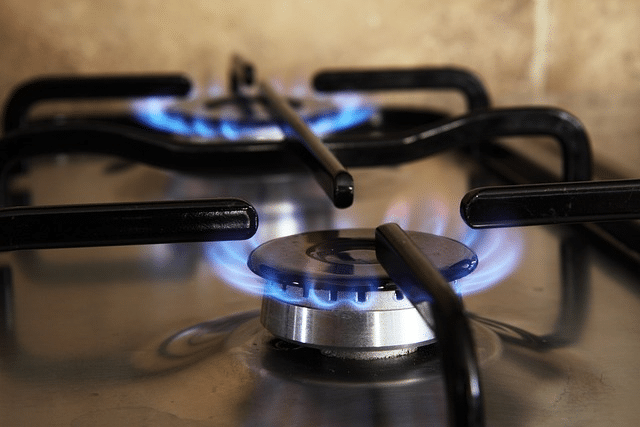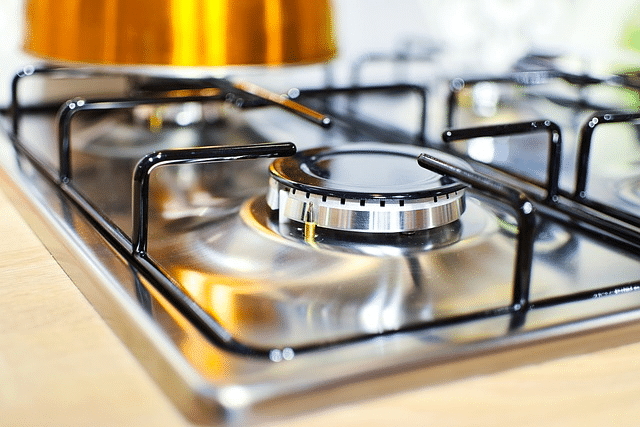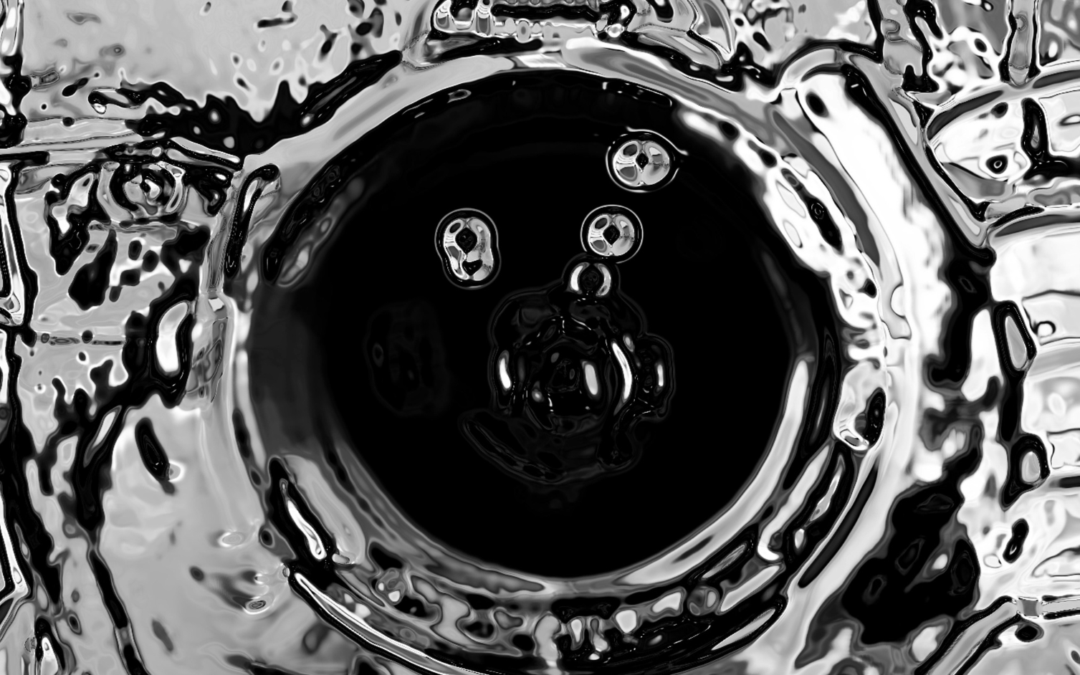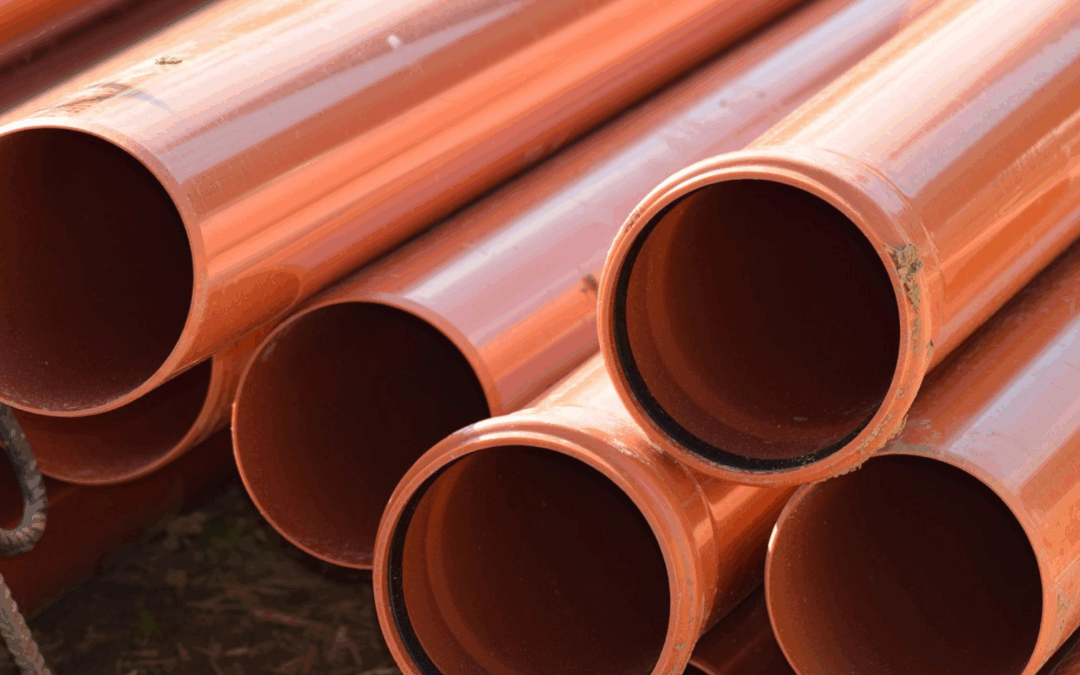Have you ever walked into your home and been hit with a smell that instantly made you gag? You stop and ask yourself, “what does gas smell like”? Maybe it reminded you of rotten eggs or something equally unpleasant. Well, before you panic and start wondering if your fridge has gone bad, let us tell you that it could be a gas leak.
That’s right, the same odor that makes you want to plug your nose is a telltale sign that something is not quite right with your gas supply. But what does gas smell like?
In this article, we’ll explore everything you need to know about the dreaded smell of rotten eggs, how to identify gas leaks, and what to do if you encounter this stinky situation. So grab a clothespin for your nose and let’s dive in!
Schedule Service Online
Get a free estimate so you know what you're signing up for
"*" indicates required fields
For Emergency Services Call: 410-255-9300
What Does Gas Smell Like?
The smell commonly associated with gas, which we are familiar with when we ignite a gas stove at home, is due to a mixture of chemicals including tert-Butylthiol and Liquid Petroleum Gas that is deliberately added. If there’s a leak, you’ll notice a smell of rotten eggs.
What Creates the Rotten Egg Smell?

Natural gas is an incredibly useful resource but it’s also highly dangerous due to its flammability. Safety precautions are therefore crucial, and one of these involves adding a chemical called mercaptan to the gas.
In its original state, natural gas is odorless, colorless, and tasteless, making it nearly impossible to detect in case of a leak. Mercaptan is non toxic and gives the gas a distinctive, highly unpleasant smell – an odor similar to rotten eggs – to ensure that leaks can be easily and quickly identified.
This smell provides an early warning system, allowing you to evacuate the area and contact professionals to address the issue.
How do I Know That I’m Smelling a Gas Leak?

Identifying the smell of a gas leak is your first line of defense in detecting a leak in your natural gas connection. As mentioned before, natural gas in its original state is odorless, but thanks to the added harmless chemical mercaptan, it emits a distinctive smell of rotten eggs.
If you notice this scent, it’s a strong indication of a gas leak. However, don’t rely solely on your sense of smell. There may be other signs such as a hissing or whistling sound near your gas lines, a white cloud or dust cloud near a gas line, or bubbles in water.
Also, a gas leak can cause physical symptoms like dizziness, nausea, fatigue, or irregular breathing. If you experience any of these signs along with the rotten egg smell, it’s highly likely you’re dealing with a gas leak.
Other Ways to Identify a Gas Leak
Beyond the trademark rotten egg smell that a gas leak smells like and the symptoms mentioned, there are other signs indicative of a leak that homeowners should be aware of. Changes in the flame color of gas stoves can be a giveaway – a steady blue flame is normal, whereas a yellow or orange flame could point to a gas leak.
Similarly, dying or discolored vegetation around pipelines or in areas where underground gas lines are laid may also signal leakage, as the escaping gas can deprive plant roots of oxygen.
Consider Getting a Gas Detector
Additionally, modern technology offers tools such as gas detectors which provide an extra layer of security by sounding an alarm if elevated gas levels are detected. Remember, when in doubt, always err on the side of caution and call a professional to inspect your home for possible leaks.
Health Effects of Gas Leaks

Exposure to gas leaks over a period of time can have serious health implications, which is why you should never ignore gas odors. Inhalation of natural gas can cause a variety of symptoms, starting with less severe ones like headaches, dizziness, and fatigue.
These symptoms are usually the body’s initial response to low or moderate levels of exposure. However, if the exposure continues and gas levels increase, more severe symptoms can occur, such as chest pain, confusion, and even loss of consciousness. Prolonged exposure can lead to significant health problems like respiratory distress or even asphyxia in extreme cases.
It’s important to remember that children, the elderly, and those with underlying health conditions may be more susceptible to these effects. Always seek immediate medical attention if you suspect you or someone else has been exposed to a gas leak.
Can Dead Plants be a Sign of a Gas Leak?

Dead plants can indeed be a sign of a gas leak. This may seem surprising, but consider this: natural gas leaks underground can infiltrate the soil and disrupt the normal oxygen balance, making it tough for plants to survive.
When leaks occur near vegetation, you may notice patches of dead or discolored plants, even if the surrounding areas are healthy and vibrant. It’s because the gas leaking into the soil essentially suffocates the plant roots, preventing them from absorbing the necessary nutrients and oxygen.
So, if you notice a sudden change in the health of your lawn or garden without an obvious cause, such as a lack of water or an infestation of pests, it could be a sign of a gas leak. Consult with a professional to rule out this possibility and ensure your home’s safety.
Are Hissing Sounds a Sign of a Gas Leak?

A hissing sound can indeed be an indication of a gas leak. When there is a leak, gas escapes from the pipe or the gas source, creating a pressure difference that makes the gas softly hiss.
The sound is more noticeable in close proximity to the source of the leak, such as an appliance, a pipeline, or your gas meter. Therefore, if you notice a suspicious hissing sound, particularly if it’s accompanied by the distinctive odor of mercaptan or any other signs of a gas leak, it’s crucial to act immediately.
Are Air Bubbles in Standing Water a Sign of a Gas Leak?
Air bubbles in standing water can indeed be a potential sign of a gas leak. If natural gas is leaking underground near a body of standing water, it could cause bubbles to rise to the surface as the gas seeks the path of least resistance to escape.
This might be observed in a puddle, a stagnant pond, or any other form of standing water in the vicinity of a gas line. However, it’s essential to remember that other factors can also cause bubbles in water, such as decomposition of organic matter. Therefore, if you observe persistent or unusual bubbling in standing water, especially if accompanied by other signs of a gas leak, it’s advisable to flea the area immediately and contact a professional to investigate further and ensure safety.
What to do if You Smell Gas Inside of Your House

If you smell gas in your house, immediate action is crucial to take the appropriate safety precautions. First, do not ignite anything, including light switches, appliance controls, electrical equipment, flashlights, or cell phones. Don’t adjust thermostats and put out any open flames as these could spark an explosion if there is a high concentration of natural gas.
Open windows and doors to ventilate the house and reduce gas concentration. Do not attempt to locate the source of the leak yourself with a bubble test. Instead, immediately evacuate all occupants from the premises to a safe distance.
Once everyone is safely away from the house, contact your local gas company or the fire department to report the leak. They have the necessary training and equipment to safely identify and repair the leak. Remember, your safety and the safety of others should always be your first priority.
How to Prevent Gas Leaks
To prevent gas leaks, regular maintenance and inspection of your gas appliances and pipelines is crucial. It’s advisable to hire professional services for routine checks, as they have the required expertise and tools to spot and fix any potential issues.
Be mindful of any changes in the performance of your gas appliances, as this could indicate a problem. Installation of a gas detector in your home is another effective preventative measure. These detectors can identify elevated levels of gas in the air and alert you early to any potential leaks, providing you with crucial time to take action.
Additionally, make sure any renovations or diggings in your property do not damage underground gas lines. Always call your local utility company to mark the location of gas lines before starting any such work.
Will a Carbon Monoxide Detector Detect Gas Leaks?
While carbon monoxide detectors are invaluable tools for detecting the presence of carbon monoxide, a dangerous odorless and colorless gas, they are not designed to detect natural gas leaks. Natural gas is primarily methane, and a carbon monoxide detector cannot identify elevated levels of this gas.
For detecting natural gas leaks, a specific gas detector is required. This device is designed to alert you to a gas leak within your home, giving off an alarm when gas levels reach an unsafe level. It’s important to remember that while both types of detectors contribute to the overall safety of your home, they serve different purposes and should be used in conjunction with each other.
How to Repair Your Gas Leak
In the event that a leaking pipe is detected in your home, it’s essential to understand that attempting to repair it yourself is not recommended, as it poses a serious hazard. The complexity of dealing with natural gas leakages requires professional expertise due to the substantial risk they pose.
As the severity of the leak increases, so do the chances of ignition, which can lead to catastrophic outcomes. Instead, your role should be to promptly inform the appropriate utility company or emergency services and allow them to handle the situation.
It’s important to abide by local regulations governing gas leak responses, as these are designed with public safety in mind. These regulations usually stipulate that only certified professionals can carry out repairs on gas leaks, due to the specialized skills and equipment required.
Is There a Way to Know About Local Gas Leaks?

Local news outlets and emergency notification systems are often the first to report on local leaks, so staying tuned to these services can help you stay informed. In addition, many utility companies offer updates on their websites or through social media platforms in the event of a natural gas leak.
For safety purposes, it’s wise to familiarize yourself with these resources and check them regularly, particularly if there’s a smell of gas in your neighborhood or other signs of a potential leak.
Also, consider signing up for any emergency alert systems offered by your local government or utility company, as these can provide immediate notifications about gas leaks and other emergencies in your area.
About Maryland Sewer & Plumbing Service
If you reside in Maryland and require dependable plumbing maintenance, resolution, or installation, our locally-run establishment, Maryland Sewer & Plumbing Service is your go-to solution! Established in 1985, we have extensive know-how in addressing a wide range of residential and commercial plumbing issues with speed and proficiency. Count on us for superior services available round-the-clock! Schedule your required sewer or plumbing service at your convenience by visiting our website today.




